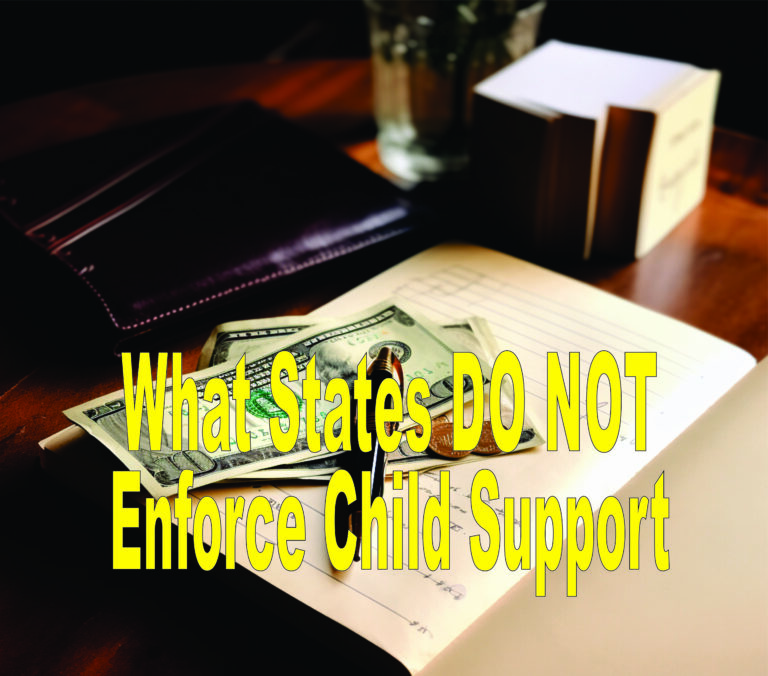How to Avoid Paying Child Support in Florida Legally

Last Updated on May 23, 2024 by Kathy
Parents have a responsibility to provide for their child’s basic needs. This responsibility is shared between the parents in a family through informal arrangements. If the parents are divorced or unmarried. However, it is necessary to determine how much financial support each parent must provide for the child’s welfare. But, what if one parent can’t support their child due to insufficient finances? Can they legally avoid paying child support in Florida?
Normally, the parent with custody would be entitled to regular payments from the parent who is not the custodial parent in the form of pre-calculated support. So, the short answer is, “Yes, but it depends.”This article will provide information on Florida child support and how to avoid paying child support .
The Process For Child Support After Divorce
To get child support from the parent who is not custodial, the custodial parent must file a “Petition For Support” first. The petition must include the names, addresses, and other details for both parents. This information will allow the state to locate the other parent and serve them with a notice. The court may order DNA testing if the paternity is in dispute. This test is an accurate way to determine the true parentage of the child.
After the confirmation of paternity, the case goes before a judge, who will determine the amount that the non-custodial parent will pay for. The court uses guidelines to determine the final child support obligation. These include the net income of each parent, the number and needs of the children involved, time spent with each parent (in the case of shared custody), and many other factors. The parent should not pay more than they can afford.
Parents can agree to a monthly amount if there is no dispute about the paternity. Present the agreement to the court for approval. After the determination of the final amount, the court will sign the agreement and the other parent must follow it.
For additional details, visit the Florida Legal Advices page.
How Do You Receive Child Support
Direct deposit is an option for parents who receive child support. The funds are transferred to the account of the custodial parent using the direct deposit option. Parents without an account, or who don’t wish to link their accounts with the child support case, can opt for a prepaid card to receive their payments.
The smiONE Visa Card is a debit card with child support payments on it. You can use it to withdraw or make purchases at any store that accepts Visa cards. Florida doesn’t send paper checks by mail so parents will have to choose one of these options. For more details on the methods of receiving child support payments, visit the FloridaVenue website and the smiONE website.
The Maximum Amount That Your Family Can Receive
Florida uses an income share model to calculate child support. This ensures that the payments are within their means. The court takes into account both parents’ incomes and the number of children, as well as their ages. The court will order the payment to ensure that the children have a similar standard living to their parents. The calculation model does not allow for a maximum amount of child support. The child support payable will be higher if the non-custodial parent has a higher income. You can access the sample of child support calculator in Florida online. However, court-ordered support might differ from what you see here. The court may make concessions to either parent at its discretion.
Child support payments are until the child reaches 18 years of age or, if the student is still in high school at 18, until the child reaches 19. If the child is still dependent after the age of 19, the custodial parent can file separate extensions to the child support payments.
Enforcement of Child Support
The parent entitled to support can file a civil contempt motion if the parent who was ordered to pay child support fails to comply with the order. If the court finds that the non-custodial parent was able to pay child support, but refuses to do so, the judge will place the parent in contempt. You may also face jail time and fines.
The court has the power to withhold income from parent’s wages, intercept lottery wins, place liens on property and vehicles, intercept tax returns, take money out of parent’s bank accounts, and so forth. The court may order the defaulting parent to pay the attorney’s fee of the custodial parent. Parents with more than $2500 in arrears will see their passports revoked. Any subsequent passport applications will be denied until the arrears are settled. For further information on the enforcement of child support orders in Florida, visit https://www.divorcenet.com/resources/child-support-enforcement-florida.html.
The Enforcement Unit of the Child Support Program may take different actions to ensure parents are paying their child support obligations. Additionally, among the possible actions against parents who are in default include:
- Income deductions where the money is taken directly from the parent’s paycheck.
- Bank accounts of the defaulting parent should be frozen
- Placement of liens on the vehicles and real property of the parent
- You can also intercept lottery winnings exceeding $600 and tax refunds
- Suspension or cancellation of licenses held by noncustodial parents. Driver’s license, fishing license, professional licenses, and so forth.
- Sending credit reports to the appropriate agencies
- If the amount owing is greater than $2500, denial of passport applications or suspension of passports
Ways To Avoid Paying Child Support In Florida
You are legally required to follow any order requiring you to pay child support if you have been ordered by the court to do so following a divorce or separation. There are still four legal ways to avoid paying child support.
Modifying an existing child support order
You might be able to request a modification if there was a requirement to financially support your child. To modify a child support order, you must satisfy certain requirements under Florida law. To modify the child support amount or cease paying it altogether, you must prove that there has been a significant change in your circumstances. This is requirement by Florida Statutes Section 61.30. Involuntary job loss and disabling injuries are two examples of “substantial change in circumstances”.
You must give up your parental rights
This option is legal and you can do this to avoid paying child support in Florida. Although it may not be the best for all parents, it is an option. You must follow Florida’s guidelines to voluntarily terminate parental rights. You should understand that you cannot request visitation rights for your child or exercise any decision-making power.
Waiting until your child is 18 years old

The fourth option to stop paying child support is to wait for your child to reach the age of majority. The support agreement becomes null and void when your child turns 18 unless there are special circumstances (e.g. your child is disabled, has special needs, etc.).
It is possible to stop support payments and avoid paying child support, but it is difficult. Contact an attorney if you are interested in exploring other legal options to avoid child support payments.







